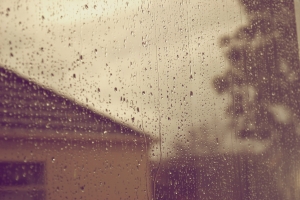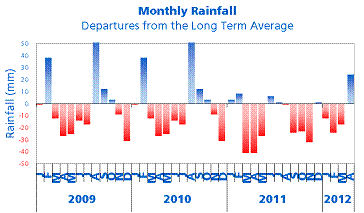Archived News - Water
Have Your Say On The Future Of Water
 We are writing to invite you to join in the conversation and have your say on the future of water.
We are writing to invite you to join in the conversation and have your say on the future of water.
This week we have launched our biggest ever public consultation to ask our customers about their priorities for the future of water services.
Water is essential for healthy living, vibrant communities, a healthy environment and a prosperous economy. We're asking you to play a leading role in our five-year review with the water industry regulator, Ofwat. We want your help to shape the future of local water services – from what we should charge to how we should operate from 2015 to 2020.
Our vision is to transform the way we all value water and use it. That's because this is the driest region in the UK and the fastest growing too. We are also vulnerable to the impacts of climate change, so a lot depends on how carefully we use water resources and how well we secure future supplies.
On our website you can Discover more information about us and this consultation, Discuss your thoughts and ideas, and then help to Decide the future of your water services.
For more and information and to tell us what you think, visit www.discoverdiscussdecide.co.uk or you can call 08457 91 91 55 to request a paper copy of the consultation.
We would also value and appreciate your support in drawing attention to our consultation, which will be open until 10th March. Here's a link to the main consultation document, and some resources you may find useful.
We look forward to hearing from you.
With our best wishes,
Richard Gard
Head of Public Affairs
Anglian Water
Source: Anglian Water
Will one really wet month make the drought go away?
 The recent downpours of heavy rain have provided some welcome relief for farmers, gardeners and the environment in our drought-hit region. In fact, this April has been the wettest for almost 100 years. Unfortunately, though, our groundwater resources, which make up almost half of all the drinking water we supply, take longer to replenish.
The recent downpours of heavy rain have provided some welcome relief for farmers, gardeners and the environment in our drought-hit region. In fact, this April has been the wettest for almost 100 years. Unfortunately, though, our groundwater resources, which make up almost half of all the drinking water we supply, take longer to replenish.
Seeing rain stream down the window and the swollen rivers, it's hard to believe there can still be a shortage of water. But after such a long period of dry weather we are going to need more than a few wet weeks to cancel out the deficit caused by many months of below average rainfall.
Mike Cook, Head of Water Resources explains why;
"We operate in the driest part of the country and have to carefully manage water resources to ensure we have enough for our 4.2 million customers.
"Up until the end of March, we had experienced the driest 18 months for 100 years, only receiving between 60 and 80 per cent of the rainfall we normally expect."
"This exceptionally dry period spanned two winter periods during which reservoirs and rivers would normally refill and recover."
What happens when it rains, where does the water go?
After a lot of rain the rivers look a lot higher, but this change only lasts as long as the rain does. Anglian Water captures a lot of the rain that flows into the rivers, and pumps it into reservoirs. Most of these are recovering well following the recent rainfall – but reservoirs only supply half of the drinking water we need in our region.
The graph below shows just how much below average rainfall we have had in the past few years compared to what we would normally expect.
Data source: Met Office

Around half of the drinking water we supply comes from ground water sources, such as wells and boreholes. These are holes drilled into the ground into layers of permeable rock which hold water. These layers of rock (aquifers) recharge very slowly and so are less affected by small fluctuations in rainfall.
After a long dry period, it can take some time for the ground to soak through before rain can filter down to the rock. Aquifers are normally replenished between October and April, but sadly because the last two winters have been so dry, replenishment has been very low.
Of the water that soaks into the ground some is used by plants and some evaporates, instead of soaking into our aquifers where we need it.
The recent heavy rainfall has led to some recharge in shallow aquifers but the response in deeper aquifers will be slower and will take another year to recover fully. In some areas, the rainfall needs to travel down more than 50 metres before it reaches the water table.
To find out more about drought and ground water resources see Who, What, Why: How much rain is needed to ease the drought?
Source: Drought Matters Update, Anglian Water
Local Resilience Forum helps residents save water
 As the hose pipe bans comes into force today, the Bedfordshire and Luton Local Resilience Forum (BLLRF) has issued advice to help local residents save water.
As the hose pipe bans comes into force today, the Bedfordshire and Luton Local Resilience Forum (BLLRF) has issued advice to help local residents save water.
The average person in England and Wales uses 150 litres of water a day, most of which is used for washing and toilet flushing. To help households save water, BLLRF have launched a new webpage packed full of useful tips such as reducing the amount of water used per flush and fixing leaking taps which can save a whopping 15 litres of water per day.
It is hoped the webpage will encourage residents to help conserve water after the driest winter on record. Despite recent rainfall, reservoir levels in parts of the country are still significantly below the average levels for this time of year.
The resilience forum are confident householders will be motivated to undertake the advice following the recent declaration of drought last month, and the opportunity to potentially save money on water bills.
BLLRF chairman, Deputy Chief Constable John Fletcher said: "The drought situation and the hosepipe ban will no doubt have an impact on almost every household in the county.
"We hope our advice will help residents conserve water and think about their water usage more carefully. By taking simple measures we can help to ensure we don't take this precious resource for granted."
For more information about way to save water please visit whatwouldyoudoif.co.uk/savingwater.php
Source: Bedfordshire and Luton Local Resilience Forum (BLLRF)
Emergency forum helps locals save water
 A local resilience forum is helping locals save water after the Environment Agency recently confirmed that parts of Bedfordshire are experiencing drought.
A local resilience forum is helping locals save water after the Environment Agency recently confirmed that parts of Bedfordshire are experiencing drought.
Despite recent rain, the county is experiencing one of the driest six month periods across East Anglia, since records began. As a result the Bedford and Luton Local Resilience forum (BBLRF) is urging locals to save water by issuing tips which could saves households thousands of litres of water per year.
The forum, made up of Bedford and Luton councils, The Environment Agency and the bluelight service are asking locals to take simple measures such as not leaving the tap running when brushing this teeth, this alone can save up to six litres of water per minute which arcoss the country is enough to fill over 1,400 Olympic size swimming pools.
For more information on ways to save water and what the drought means for you visit: environment-agency.gov.uk/homeandleisure/drought/
Source: Ringmaster Bedfordshire